

Morning Announcements



Robin Tuohy
Vice
President
Support Groups


Thank you to our Donors
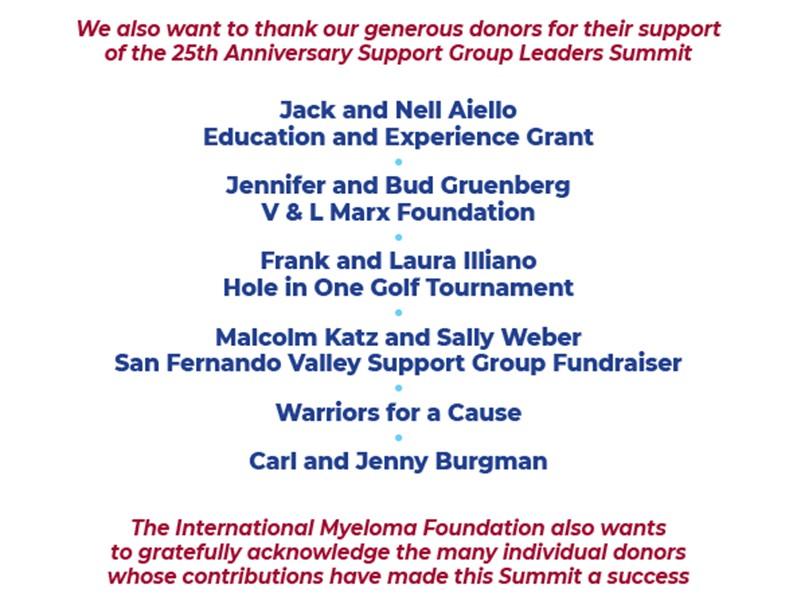









Saturday Program Evaluation Reminder




An Open Dialogue: Your Questions, Our Commitment







Yelak Biru Dr. Joe Mikhael Robin Tuohy Sylvia Dsouza Emma Hatcher

Time to Hope: Lessons from the Myeloma Community


Sue Dunnett PhD Professor and Personal Chair of Consumer Culture and Society, University of Edinburgh


Time to Hope: Lessons from the Myeloma Community
Susan Dunnett
University of Edinburgh Business School

The first SGLS
A visionary programme to bring leaders together to share support, best practice and education


My first meeting with support group leaders and the MM community
Infectious passion and drive to make things better
Vulnerable, warm, open, generous, knowledgeable and impressive



What is hope ?
Hope is an emotional attitude and pathway to action

Hope is a way of thinking – we have to work at it
Hope is linked to positive outcomes in illness and life
Hope is a mobiliser and brings people together – individual and collective

Hope is the bedrock of resilience and general wellbeing





“Hope is the thing with feathers That perches in the soul And sings the tune without the words And never stops at all.”
Emily Dickinson


The IMF: a foundation of hope

One person can make a difference, two people can make a miracle.
IMF Founder, Brian Novis
IMF founded on hope for many things:
Access to information, education and treatments
Support for patients and their care partners
World class research to accelerate a cure
The fight for fair access and costs
A hope that others wouldn’t go through what they did



Time to hope
Hope is at the core of, indeed is core business, for the IMF

Dr Durie: from fear to hope
Yelak Biru: Time to Hope: IMF reduces the time from fear to hope Is it all about diagnosis?




Hope at all stages: ongoing hope is essential
At diagnosis – sometime before
When treatment choices must be made
When taking treatment
When side effects become difficult
In remission
At relapse
When you’re burnt out
When you’re afraid
When your excluded and can’t access help

Reaching people in underserved communities




The object of hope: what is hoped for

Hope can be non-specific but in MM it often is based around a particular outcome
Yet what is hoped for can and will change
Life stages and opportunities
Stages of the disease/treatment/remission
Hope and acceptance/hope and denial
Hope and death/loss

Hope and the possible


Support groups are cultures of hope
Hope is contagious
Hope can be shared
Groups can share the gift of hope through stories
Hope can be lost and it can be found


Hope can be purposefully built
Hope often has basis and can be rational as well as emotional
Hope underpins science and medicine
Hope is needed all the way

Inspirational leaders create cultures of hope

What are the pathways of MM hope?

Human connection and example to others (stories)
Education and understanding
A future focus and science
Access to Drs and treatments
Citizenship and giving to others




Voyagers in hope: hope dies last

Citizenship, connection and shared hope create powerful bonds which allow:
Healing after loss
Leading after losses
Passing it on
Resilience in the face of adversity
A community to thrive and to change the disease itself

In the MM community hope continues on, fragile yet strong and never stops at all


Celebrating hope and your support groups


What have you learned about hope from the IMF/ MM community/your support group?
OR What makes you feel hopeful?


Health Disparities in Myeloma


Joseph Mikhael, MD, MEd, FRCPC, FACP,
Support Group Leaders Summit 2024
Health Disparities in Myeloma
Joseph Mikhael MD, MEd, FRCPC
Chief Medical Officer, International Myeloma Foundation
Professor, Translational Genomics Research Institute, City of Hope Cancer Center
What are Health Disparities?
•Health disparities are preventable differences in the burden of disease, injury, violence, or opportunities to achieve optimal health that are experienced by socially disadvantaged populations
- Centers for Disease Control (CDC)
•Health equity generally refers to individuals achieving their highest level of health through the elimination of disparities in health and health care




A Call to Action Facts About
African Americans and Myeloma


M-Power = Myeloma Power

The core vision of this initiative is to improve the short- and long-term outcomes for African American patients with myeloma.
We want to empower patients and communities to change the course of myeloma…
Enhance access to optimal care by educating myeloma providers about the disparity and how to reduce it
Engage the community to increase awareness and provide support
Shorten the time to diagnosis by educating primary care providers to recognize the disease and order the right tests

Engage

Cobb Institute
National Medical Association
Faith Community
Meeting Communities Where They Are
Black Health Matters
Educational Materials
Cancer Center
Community Organizations

The current or FUTURE patient, family member, or caregiver
Print Materials
Involved Support Group Leaders
165+ US Support Groups
National Black Nurses Assoc
Free Community Workshops
Thousands of print publications distributed




Over 400,000 visits to M-Power site!
M-Power Website






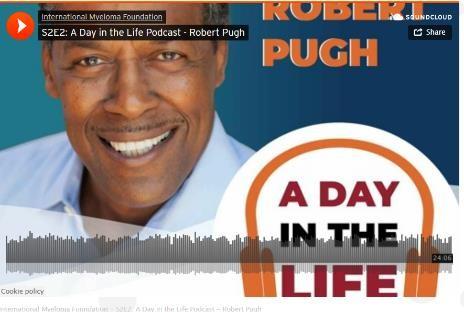


Patient Interview On Local News
Meeting Patients and Communities Where They Are Through Engaging, Creative Formats
Healthy Churches 2030 Conference with Doug E Fresh
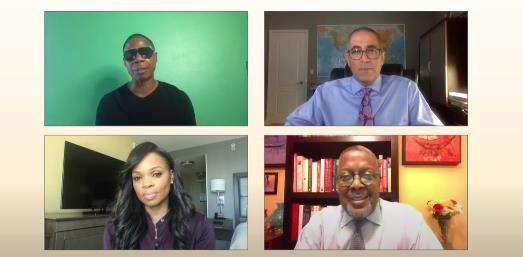
470 Physical Posters + e- version

Customizable Education Options presented to community leaders (e.g. faith nurses, habitat for humanity, divine 9)



Myeloma as the 5th Cancer in community cancer education

Myeloma Added to Family Cancer Education Program



Juneteenth 2024: Abyssinian Church, Harlem



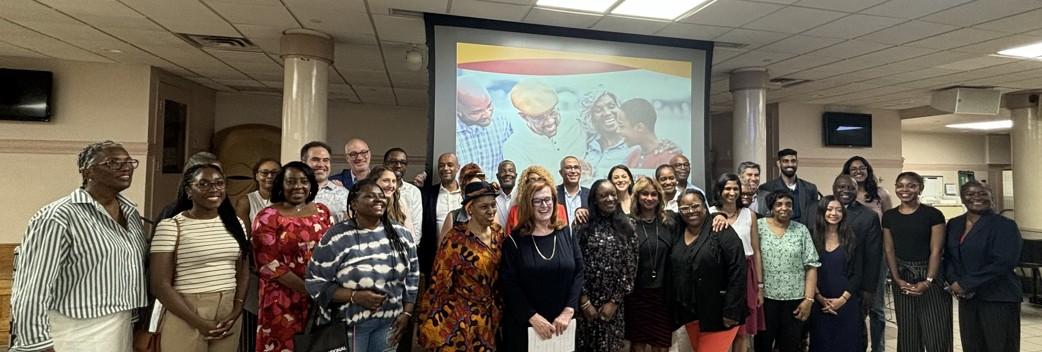


Educate
Education of Primary Care Providers
Our goal is to reduce DELAYS in diagnosis among African Americans by educating the primary care community with a focus on:
• Recognizing the signs and symptoms of myeloma
• Discriminating myeloma from other diagnoses such as diabetes
• Capturing an accurate diagnosis through proper use of testing
• Providing referral guidelines for Hematology and Oncology


• Grand Rounds
• Postcards mailed to 6,000+ PCPs in target cities
• Free PCP CME course “Don’t Miss Myeloma”

• Cobb Institute talk Talk at NMA Annual Meeting Articles and pending publications


8,000
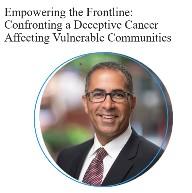

Learners
Enhance
Multiple Projects
Nurse Leadership Board – Best Practices Paper
Physician Best Practices Paper

Medical Student Scholars for Health Equity in Myeloma
Clinical Trial Mentorship Program


Annual Meeting of the National Medical Association
Jane Cooke Wright Symposium on Health
Disparities
• Hosted by Dr. Edith Mitchell
• Keynote speaker - Dr. Monica Bertagnolli, the director of the National Cancer Institute (NCI)
• Dr. Mikhael spoke about health disparities in myeloma


Poster Walk
Student research was presented to Yelak Biru, Dr. Mikhael, Dr. Mitchell, Dr. Morgan (CEO of the Cobb Institute) and Dr. Bertagnolli.






M-Power Website:
•Web Stats: Over 40k Page views across main, city sites & myeloma.org
•Google PPC targeted web traffic
Email Stats:
•Total Sent: 18 emails
•Total Audience: 38k*
•Open Rate Avg: 31%*
*Note: We have continued to refine lists, contributing to a more engaged audience as evidenced in the Open Rates (The industry standard high-mark is 21%).
M-Minute Promotion
Stats:
•Total Sent: 19 emails
•Total Audience: 323k
•Open Rate Avg: 38.91%
M-Power Connections …And Growing!
M-Power Related Video
Stats:


Key Take Aways
•Health disparities are sadly prevalent across all diseases, but particularly in multiple myeloma
•There are MANY other types of inequity in myeloma, including geography, age, gender, orientation…
•Being aware of these disparities is critical to overcoming them
•The IMF’s M-Power is designed to reduce the inequity with specific emphasis on
• ENGAGING the community to raise awareness of MM
• EDUCATING primary care provides to shorten the time to diagnosis
• ENHANCING the care of patients through increased access delivered in a culturally sensitive manner...

What Can I Do??
Be more conscious of the topics of health equity
Evaluate the opportunities in your experience to reduce disparities Support the M-Power movement!


VIDEO
Stretch & Morning Break





Personalized Clinical Trial Support



Brian McMahon Spark
Personalized Clinical Trial Support

Please provide feedback to Brian and Avi using this QR Code available here on this slide or at the SparkCures table in
the foyer!


J&J Presentation Cynthia Messer

Pfizer
Dr. Richa Shah

Morning Wrap-up

Robin Tuohy
BCAM 2024:
How Can You Help? A Challenge We Pose to YOU!
Our company's social media accounts can only reach so far. We need your help to spread the word about myeloma and make a real impact. Here's a challenge for this weekend and beyond…:
• Engage: Like, comment, and repost content from the IMF's social channels to increase visibility.
• Share: Share something from the SGLS -photo, something that moved you, tips you’ve learned, etc. -- and be sure to hashtag #kNOwMyeloma
Together, we can raise awareness and support those affected by this disease!! Thank you!




Lunch





How to Have a MRD Conversation Between Physician and Patient





Mikhael, MD, MEd, FRCPC, FACP
Joseph
Yelak Biru

Care Through the Myeloma Journey: Planning for the Future


Thomas, RN, MSN, CHPN
Bloch Cancer Care Pavilion
University of Kansas Health System
Wendy
Care Through the Myeloma Journey: Planning For the Future



Wendy Thomas, RN MSN CHPN
Outpatient Palliative Care, Nurse Navigator
Kansas City Area Myeloma Support Group Leader

About me:
• Nurse 27 years
• 14 years in blood and marrow transplant
• 8 years in palliative care
• 10 years as a myeloma support group leader
• 17 years at University of Kansas Health System
• Based at the Bloch Cancer Care Pavilion, Westwood Kansas




https://seer.cancer.gov/statfacts/html/mulmy.html
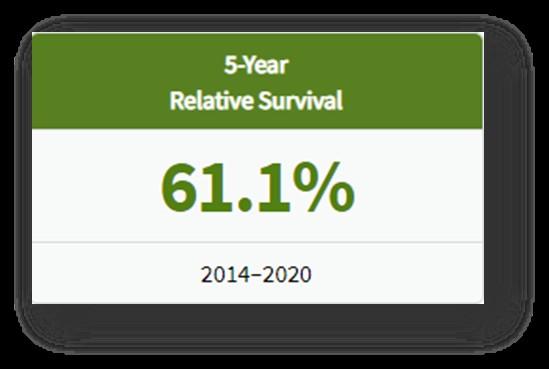





https://seer.cancer.gov/statfacts/html/mulmy.html




Supporting our members at every stage Image

A member calls following recent physician visit…

Image Credit: https://images.app.goo.gl/wNwNqfYYSCx9CbdZ8
Palliative Care
Palliative Treatment
Best Supportive Care


Hospice
What
is Palliative Care?
• Specialized medical care for people with serious illness
• Focuses on providing relief from symptoms
• Goal to improve quality of life for patient and family/caregivers
• Delivered by a team of doctors, nurses and other specialists to provide an extra layer of support

Image Credit: https://images.app.goo.gl/tkC4zGt3hK5wSTdD6
• Appropriate at any age and any stage of a serious illness
• Can be provided along with curative or disease controlling treatment.


Serious illnesses have special needs

Image Credit: https://images.app.goo.gl/3fTN2582g5H6YJdM8
Today, many serious illnesses can be controlled for years
Cancer can be like a chronic condition for many people
Treatment can control but may not cure
Patients with incurable diseases can live years
Ongoing treatment comes at a physical, emotional, and financial cost
Medical care is complex and requires a multidisciplinary approach, allowing each team to focus on their specialty area:
Oncologist – Medical evaluation and managing the plan of care
Palliative Care – Detailed conversations to enhance treatment decision making and symptom management
Both focusing on goals of care and quality of life


Why haven’t I heard of Palliative Care?
Palliative Care, and a type of Palliative Care called Hospice, are newer medical specialties
2006: Palliative Care recognized by the American Board of Medical Specialties
1982: Hospice Medicare Benefit established Primary Palliative Care includes symptom management, code status and goals of care discussions, and hospice transition.

Connor 2007 Omeg http://citeseerx.ist.psu.edu/viewdoc/download?doi=10.1.1.1031.4439&rep=rep1&type=pdf https://www.uptodate.com/contents/primary-palliative-care


Palliative Treatment
• Treatment given to help reduce the symptoms from myeloma
• Surgery, radiation, or chemo given to remove, shrink, or slow the growth of myeloma that is causing pain or affecting function
• May be given at any stage of disease



Best Supportive Care
• Continue visits with oncologist
• Continue transfusions
• Continue dialysis
• Hospitalizations if needed for reversable problems
• Procedures or treatment to manage pain from myeloma bone involvement



Hospice

Image Credit: Wendy Thomas Dad and Anna in Spencer home, December 2009
Designed to give supportive care to people in the final phase of a terminal illness
Focuses on comfort and quality of life rather than cure
Quality of life over quantity of life
Goal to assist patients to live each day as fully as possible



Image Credit: https://images.app.goo.gl/QXv9Y88KLiifBAPW7


Planning is important at every stage…











Image Credit: https://images.app.goo.gl/rRe2iDdaKeyx1hTN8


Planning is empowering!

Image Credit: https://images.app.goo.gl/FRMTa3Tozacq5LKNA
Determining your healthcare spokesperson
Deciding the level and type of care you would want
Focus of Palliative Care providers
Ensures your wishes are known and can be carried out


Do you have an Advance Directive?
• Important at every stage of life
• Crucial for those with a serious illness It’s important to discuss and prepare for future medical care decisions
• Who would you want to speak for you, if you were unable to speak for yourself?
• Do your family/loved ones know what your wishes would be in a healthcare emergency?
• Do YOU know what your wishes would be? Image




Image Credit: https://images.app.goo.gl/KQw2mywaG5orMo9k7

Image Credit: https://images.app.goo.gl/opdghCEhmwagSFcdA


What are your wishes?

Image Credit: https://images.app.goo.gl/7ZKZwrb5qjkiFu4U7
Code Status
What
is a Code Status?
• Cardiopulmonary Resuscitation or CPR
Why do they keep asking?
• Code status expires at discharge
• Out of hospital DNR
• Living Will
How aggressive do you want care to be?
• ICU
• Mechanical Ventilation
• Medically administered nutrition
Discussing with your physician is vital
• Physician orders
• Require physician signature






Storage of ACP documents





• Make certain your family/loved ones know the location of documents
• Give a copy to your healthcare providers/health systems
• Easy to find in case of emergency
• These documents DO NOT belong in your safe deposit box
• Fridge and bedside table are good locations
Other practical issues
Planning ahead
• Eases the burden for family/loved ones
• Protects your assets
• Allows you to manage your personal effects
The computer age
The electronic era brings new challenges
• Cellphones, computers
• Online accounts
• Social media
• Photos










Image Credit: https://www.shutterstock.com/search/journey



Video Stretch & Afternoon Break





Support Group Resource Refresher













International Myeloma Foundation Support Group Team


Robin Tuohy Vice President, Patient Support

Nancy Bruno PT Director, Support Groups

Becky Bosley Director, Support Groups

Cecilia Romero Project & Technology Manager, Support Groups

Jenn Wieworka Director, Support Groups







Support Groups make a Difference!




IMF – Special Interest Virtual Groups

Special interest groups are designed as a supplemental support for specific populations of patients, in addition to their local Support Groups
Las Voces de Mieloma-founded in 2022
Designed for Spanish speaking patients only
Living Solo & Strong with Myelomafounded in 2022
Designed for patients without a care partner

High Risk Multiple Myeloma-founded in 2023
Designed to address the needs of the high-risk MM population
Care Partners Onlyfounded in 2024
Designed to address the needs and concerns of care partners
Smolder Bolder-founded in 2023
Created for people living with Smoldering Multiple Myeloma
MM Families-founded in 2021
For patients & care partners with young children

IMF | Support Group | Starting a Group


IMF | Support Group | Starting a Group




IMF | Support Group | Starting a Group







We can also create and host a Website for your group that is customizable to your needs!

you
• All leaders can access one email account
• Support group info isn’t mixed in with personal info
• City @IMFsupport.org

IMF | Support Group | Starting a Group



Individual Zoom accounts for each support group
• Tech support
• Recurring meeting setup assistance
• Individual one-on-one trainings if needed

IMF | Support Group | Outreach



IMF | Support Group | Outreach



IMF | Support Group | Available Presentations

Need a Speaker?








IMF | Support Group | Newsletter

Links to register for upcoming webinars, workshops, & conferences

Resources & Publications








IMF Educational Publications
A core mission of the IMF is to provide thorough and
























Our
Priority & Promise:

We will listen. We are here for you. Let’s work together to impact more lives!
Leader Panel Discussion: Exchanging Best Practices for
SuccessVeteran Leaders:
Thomas Goode, Durham, NC

CA
New Leaders:
Terry Glassman, Long Island, NY
Bloomington, IL
Malcolm Katz & Sally Weber, Encino,
Adrienne & Chad Moore,

Saturday Program Evaluation Reminder


Day 2 Recap
Announcements and Evaluations

4:00 PM-Open Options (60 minutes)
Please attend the option you selected:
• Yoga (Henry’s Hollow)
• Nature Walk – guided tour (Meet in Aunt Mary’s Lawn) OR
• Enjoy networking by the pool and relaxing!

6:00 PM Networking and Evening Reception
Saturday Evening
6:45 PM Group
Photo Independence Lawn Stairs 7:00 PM Dinner Hill Country Ballroom


Sunday Morning

6:30 – 9:00 AM Breakfast &
Networking
Hill Country Ballroom EF
Airport Shuttles scheduled to depart at: 9:00AM, 10:30AM, 12:00PM, 1:30PM
Be in lobby 15 min prior to Departure Time


Thank you to our Donors

